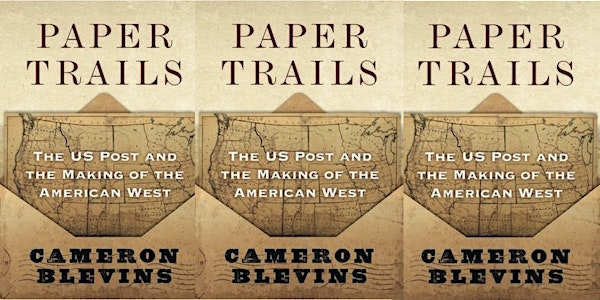There were five times as many post offices in the United States in 1899 than there are McDonald's restaurants today. During an era of supposedly limited federal government, the United States operated the most expansive national postal system in the world.
In this cutting-edge interpretation of the late nineteenth-century United States, Cameron Blevins argues that the US Post wove together two of the era's defining projects: western expansion and the growth of state power. Between the 1860s and the early 1900s, the western United States underwent a truly dramatic reorganization of people, land, capital, and resources. It had taken Anglo-Americans the better part of two hundred years to occupy the eastern half of the continent, yet they occupied the West within a single generation. As millions of settlers moved into the region, they relied on letters and newspapers, magazines and pamphlets, petitions and money orders to stay connected to the wider world.
Paper Trails maps the spread of the US Post using a dataset of more than 100,000 post offices, revealing a new picture of the federal government in the West. The western postal network bore little resemblance to the civil service bureaucracies typically associated with government institutions.
Instead, the US Post grafted public mail service onto private businesses, contracting with stagecoach companies to carry the mail and paying local merchants to distribute letters from their stores. These arrangements allowed the US Post to rapidly spin out a vast and ephemeral web of postal infrastructure to thousands of distant places.
The postal network's sprawling geography and localized operations forces a reconsideration of the American state, its history, and the ways in which it exercised power.
Cameron Blevins is Associate Professor, Clinical Teaching Track, in the History Department at the University of Colorado Denver, and is a respected leader in the field of digital history.
We will not have a reception before this event. Parking will be available on the SMU campus. FREE passes will be emailed to registered guests before the event. Seating is limited, and not guaranteed. This event will not be live-streamed, but will be recorded and available for viewing on our website (smu.edu/cph) about a week after the event date. Blevins’ publication of the same title will be available for purchase and signing after the event.
TEACHERS ONLY -- Please sign in at the registration table to receive continuing education credit.
We hope you can make it!
